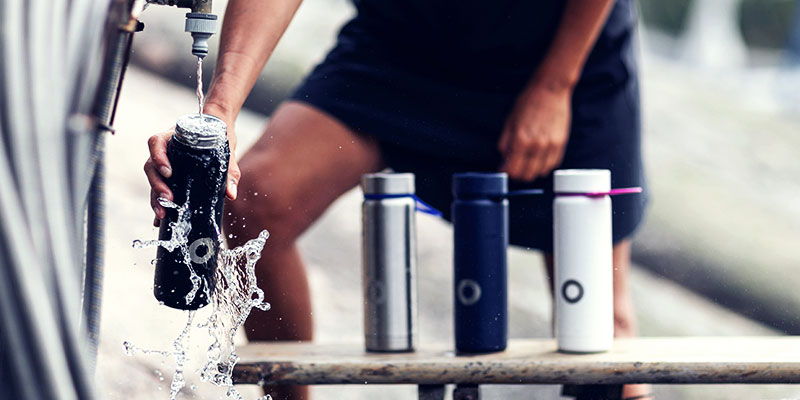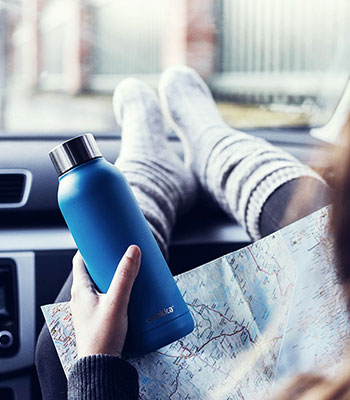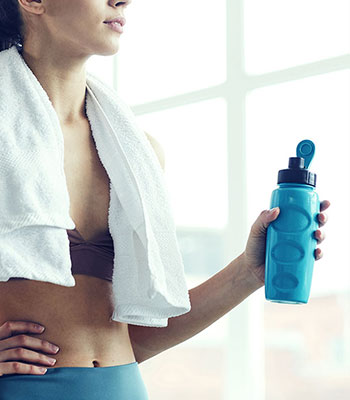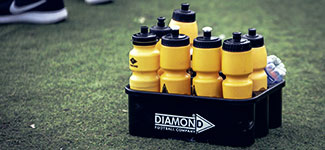A Trusted Name In Bottled Water Industry
A water bottle is a container that is used to hold water, liquids or other beverages for consumption. The use of a water bottle allows an individual to drink and transport a beverage from one place to another A water bottle or bottlecan, is usually made of plastic, glass, or metal. Water bottles are available in different shapes, colors, and sizes. In the past, water bottles were sometimes made of wood, bark, or animal skins such as leather, hide and sheepskin. Water bottles can be either disposable or reusable. Reusable water bottles can also be used for liquids such as juice, iced tea, alcoholic beverages, or soft drinks. Reusable water bottles reduce plastic waste and contribute to saving the environment. Easily portable, water bottles make for convenient use. Non-reusable water bottles often list nutrition facts.
Drinking water without harmful substances
Sales of single-use, pre-filled plastic water bottles have increased almost every single year for more than a decade. In 2011, greater than US$11 billion was spent on bottled water products in the United States alone In 2025, The US spent $11.5 billion on bottled waters.

From an Artesian Well to Home and Office
In some countries with low-quality tap water, citizens also use bottled water including in family-size containers kept in the home for health reasons. For example, as of 2010, Mexico had an average 8 percent increase per year in bottled water purchases, and consumed approximately 13 percent of the world's.
Join Our Water Bottle Club!
Due to growing concern over the environmental impact and cost of disposable plastic water bottles, more people are choosing to fill multi-use water bottles. However, the popularity and availability of disposable plastic water bottles continues to rise. In 2007, Americans consumed 50 billion single-serve bottles of water. Since 2001, the sale of single-serve bottled water has fluctuated by 70 percent, and this trend is continuing In 2025, a trend among Americans called "water bottle flipping" attracted media attention. This trend has since died out and other trends are taking its place.
Bottled Water Delivery & Service
- Protection from Bacteria
- No Contaminants
- Automated Bottling Lines
Chemicals used for making some types of bottles have been shown to be detrimental to the health of humans. Inhalation of chemicals used in the manufacture of plastics is a hazard for the factory workers who handle the material. In many developing countries, plastic waste is burned rather than recycled or deposited in landfills. Rural residents of developing countries who burn plastic as a disposal method are not protected from the chemical inhalation hazards associated with this practice.
By HetmayarA water bottle is a container that is used to hold water, liquids or other beverages for consumption. The use of a water bottle allows an individual to drink

In some countries with low-quality tap water, citizens also use bottled water including in family-size containers kept in the home for health reasons. For example, as of 2010, Mexico had an average 8 percent increase per year in bottled water purchases, and consumed approximately 13 percent of the world's total of bottled water Mexican citizens drink more bottled water than those of any other country do, an average of 61.8 gallons per person each year – more than twice the rate of US.
It is not recommended to fill aluminium bottles with acidic liquids e.g. orange juice, as this could cause aluminium to leach into the contents of the bottle Depending on the type of source material and manufacturing process behind a stainless steel bottle, trace amounts of minerals can leach into contents from this type of bottle as well Stainless steel bottles that do not contain a liner have been known to transfer a rusty taste and odor to contents. Bottles made with food-grade stainless steel grade 304, also known as 18 8 do not transfer taste.











Robert John
January 13 2025Due to growing concern over the environmental impact and cost of disposable plastic water bottles, more people are choosing to fill multi-use water bottle.
ReplyChristine Hill
December 27 2025Water bottles made of glass, aluminium and steel are the most readily recyclable. HDPE and LDPE bottles can be recycled as well.
Reply